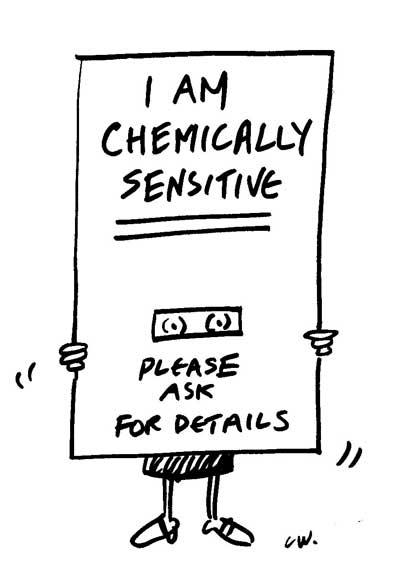|
|
Joining up the dots... |
|
Chemically sensitive Lesley Williams calls us to action |
|
I need a cardboard sign to hang around my neck. ‘I suffer from chemical sensitivity’ it would say. ‘Would you please be good enough not to wear perfume products when you are with me. Would you please not use any household sprays. Would you please not have perfumed flowers in your house. Would you please clean your bathroom with non-volatile cleaning products. Would you please… Would you please… Would you please.’ But in the UK... So this is my suggestion. How about a concerted campaign informing those who really can make a difference – big business, health authorities and education authorities? How about asking them to commit to a campaign within their own organisations? How about encouraging influential charities to meet with them and act, not to wait for the ‘big threat’ (like air fresheners in the underground) before reacting. It is such a simple message. How about joining up the dots? Click here for more articles on chemical sensitivity First Published in 2009 |













